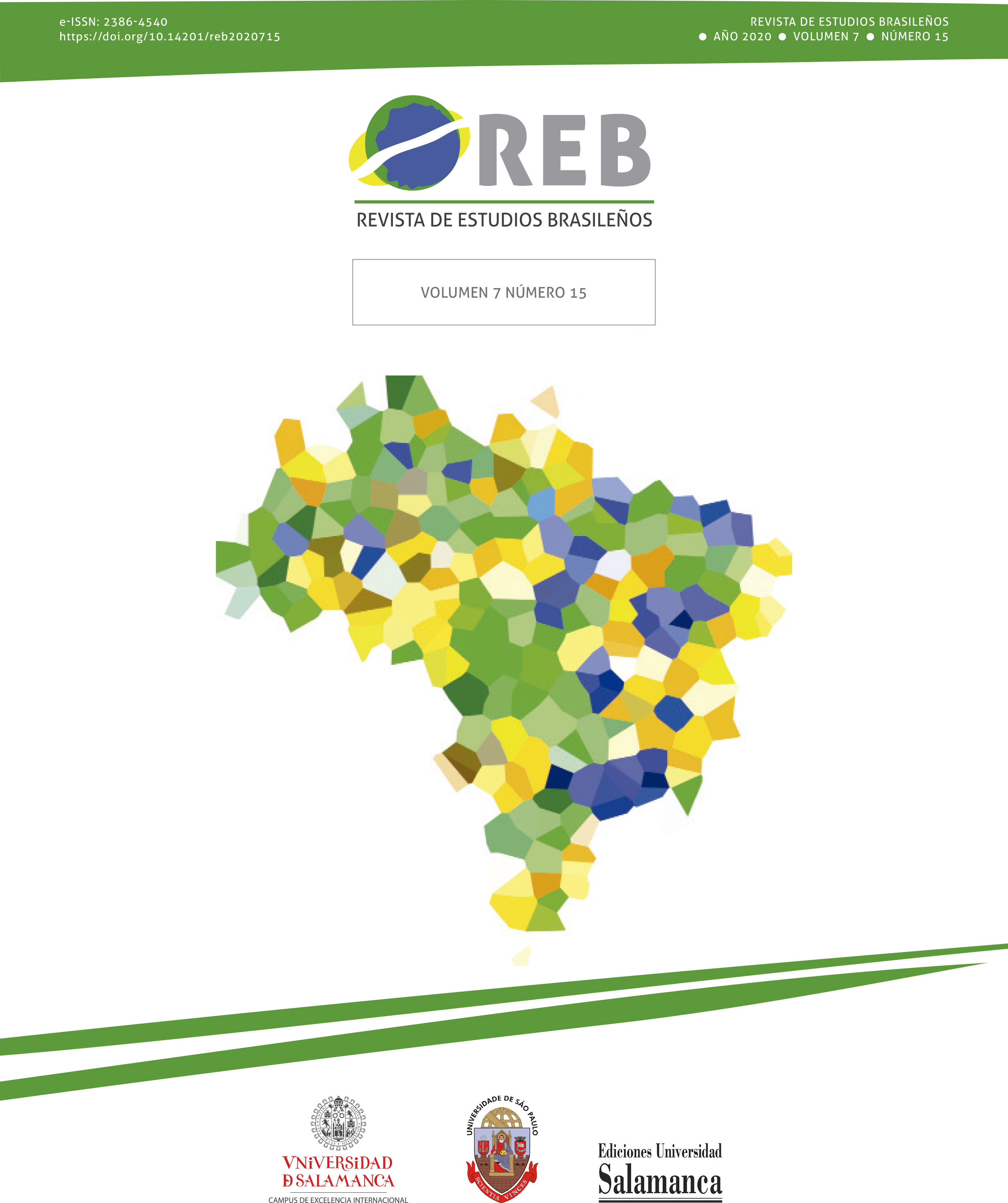A real is confessed: Graciliano Ramos and the alienation paradox
DOI:
https://doi.org/10.14201/reb20207157188Keywords:
São Bernardo, Vidas secas, realism, confession, modernityAbstract
This study aims to examine the work of Graciliano Ramos, more specifically São Bernardo (1934) and Vidas secas (1938). I will start from Antonio Candido's insight regarding the author's work: it oscillates between two poles, fiction and confession. Instead of considering them as mutually exclusive, the hypothesis is that the oscillation concerns a paradoxical reading of modernization, in which it is seen as necessary but impossible. The traits of this impossibility, in turn, concern a particular understanding of the idea of alienation: namely, how to manage a lack that, in itself, forms the object Ramos is interested in: the sertão as the locus of exploitation. The specific context of the 1930s romance in Brazil will be taken into account, as well as its relationship with the political events of the period and the particular place that the country occupied in Western capitalism. Finally, a hypothesis will be put forth regarding Ramos' formal arrangement. I argue that its realism depends on the confession of this impossibility, in which alienation is exposed, and through which it would be possible to glimpse the utopian trait beyond the limits of the modern.
Downloads
References
Abdala, B. (2012). Literatura comparada e relações comunitárias, hoje. São Paulo: Ateliê.
Alencar, J. d. (1931). O sertanejo: romance brasileiro. São Paulo: Melhoramentos.
Alencar, J. d. (2015). Til. Barueri: Ciranda Cultural.
Amado, J. (1996). Cacau: romance. Rio de Janeiro: Record.
Assis, M. d. (1988). Dom Casmurro. São Paulo: Martins Fontes.
Auerbach, Erich (2007). Mimesis: a representação da realidade na literatura ocidental. São Paulo: Perspectiva.
Bakhtin, M.M (1984). Problems of Dostoevsky's poetics. Minneapolis: University of Minnesota Press.
Barbosa, K. (2019). Da Verwerfung em Freud à foraclusão em Lacan. Reverso, 41(77), 57-64.
Berman, M. (1982). All That is Solid Melts into Air: the experience of modernity. New York: Simon and Schuster.
Bier, F. (2015). O tribunal realista: considerações críticas sobre Machado de Assis e o gênero romance. Magma, 22(11), 3-16.
Bueno, L. (2006). Uma história do romance de 30. São Paulo; Campinas: Editora da Universidade de São Paulo; Editora da Unicamp.
Candido, A. (1956). Ficção e confissão - ensaio sobre a obra de Graciliano Ramos. Rio de Janeiro: Livraria José Olympio Editora.
Candido, A. (1964). Formação da Literatura Brasileira: momentos decisivos (Vol. 1, 2). São Paulo: Martins.
Jameson, F. (2013). The antinomies of realism. New York: Verso.
Johnson, R. (2017). Graciliano Ramos and Politics in Alagoas. In S. Brandellero, & L. Villares. Graciliano Ramos and the making of modern Brazil: Memory, politics and identities. Cardiff: The University of Wales Press.
Lafetá, J. L. (2004). A dimensão da noite e outros ensaios. São Paulo: Duas Cidades; Ed. 34.
Pacheco, A. P. (2010). A subjetividade do Lobisomem (São Bernardo). Literatura e Sociedade, nº 66, 66-83.
Pacheco, A. P. (2017). Faulkner e Graciliano: pontos de vista impossíveis. In B. A. Júnior. Graciliano Ramos: muros sociais e aberturas artísticas. Rio de Janeiro: Record.
Pasta, J. A. (2013). O ponto de vista da morte - uma estrutura recorrenta na cultura brasileira. Revista da Cinemateca Brasileira, 7-15.
Ramos, G. (1947a). Angústia: romance. Rio de Janeiro: Livraria José Olympio Editora.
Ramos, G. (1947b). Caetés: romance. Rio de Janeiro: Livraria José Olympio Editora.
Ramos, G. (1947c). São Bernardo: romance. Rio de Janeiro: Livraria José Olympio Editora.
Ramos, G. (2000). Vidas secas. Rio de Janeiro; São Paulo: Record.
Rosa, J. G. (1967). Grande sertão: veredas. Rio de Janeiro: Livraria José Olympio Editora.
Schwarz, R. (1997). Duas meninas. São Paulo: Companhia das Letras.
Downloads
Published
Issue
Section
License
Copyright (c) 2021 Felipe Bier

This work is licensed under a Creative Commons Attribution-NonCommercial-NoDerivatives 4.0 International License.


